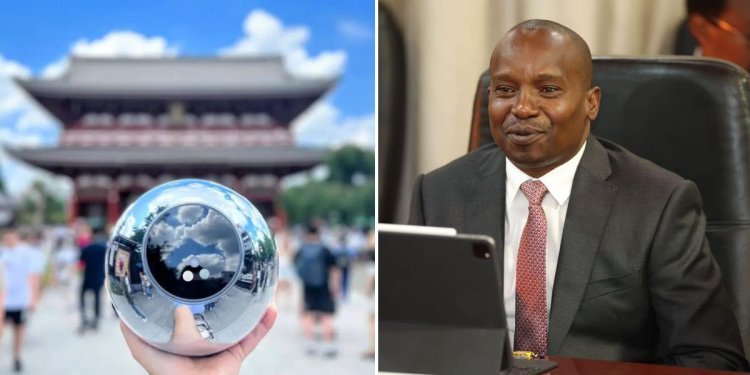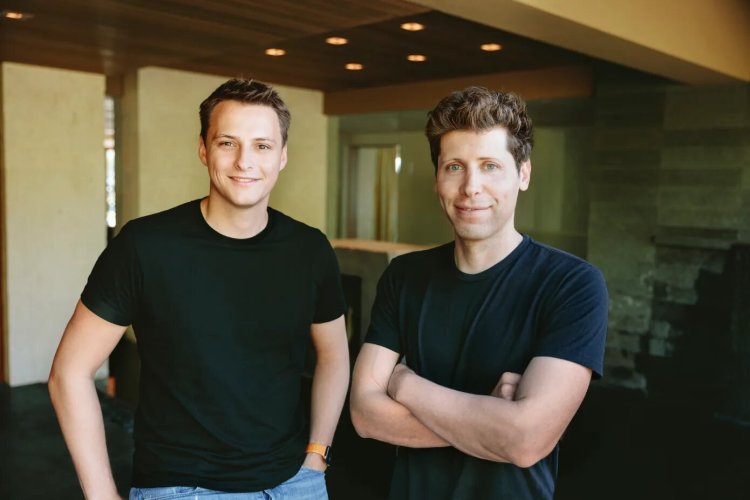Govt Seizes Worldcoin Orbs Used To Scan Kenyans' Eyeballs
Kindiki stated that the government was conducting a forensic analysis of the hardware components of OpenAI that the American Artificial Intelligence company used to collect data from Kenyans

Interior Cabinet Secretary Kithure Kindiki revealed to Parliament on Thursday, September 14, that the Kenyan government seized Worldcoin devices used to extract data from Kenyans in exchange for a Ksh7,000 token.
Kindiki stated that the government was conducting a forensic analysis of the hardware components of OpenAI that the American Artificial Intelligence company used to collect data from Kenyans for the now-suspended cryptocurrency project.
The CS told the Senate Ad Hoc committee that 48 Orbs, electronic gadgets and assorted merchandise used in the project were recovered from Tools for Humanity (TFH) agents.
According to Kindiki, 'Tools for Humanity Corporation' and 'Tools for Humanity' agents were involved in the collection of biometric data, particularly iris scans of individuals, in exchange for the irresistible tokens.

WorldCoin's iris-scanning device is seen at a sign-up site in Shoreditch, East London, Britain July 24, 2023. /REUTERS
Tools For Humanity is the Germany-based global hardware and software company that led the initial development of the Worldcoin protocol.
“The National Security agencies have also recovered assorted documents and recorded 26 statements from witnesses and other persons of interest and are currently being analysed.
"The investigations will be expedited in consideration of the public interest and national security concerns, and those found culpable shall be prosecuted in accordance with the law,” Prof Kindiki revealed.
During the briefing, Kindiki also underscored the potential nexus between cryptocurrencies, money laundering, and the financing of terrorist activities.
‘’There is a correlation between cryptocurrency, money laundering, and financing of terrorism. There exists a legal and regulatory gap in cyber security and cybercrime prevention in the Data Protection Act No. 18 of 2021,’’ stated Kindiki.
To deal with the concerns, a task force has been established to develop regulations under the Computer Misuse and Cybercrimes Act of 2018.
"A task force has been established to develop regulations under the Computer Misuse and Cybercrimes Act, 2018, and proposed regulations will help address gaps in cybersecurity and cybercrime prevention and give full effect to the Act," Kindiki stated.
The crypto project was suspended in Kenya on Wednesday, August 2 over data security concerns amid a hysterical uptake as over 635,000 Kenyans registered to have their eyeballs scanned with the Worldcoin Orb as proof of humanity against their online identities.
Kindiki furthermore expressed that he had yet to be convinced that Worldcoin activities were safe because the company was operating without clearance from the government.
“Citizen data is a sovereignty issue. They harvested data here operating outside the law.
"I know I run the risk of being told I’m standing in the way of commerce but as a security manager, I need to know who is behind any crypto the source of their investment and who is doing what because if we allow anything that will harm the people of Kenya I will be asked,” he stated.
Kindiki's statement came amidst findings that out of the over 635,000 Kenyans who registered for Worldcoin, slightly over 300,000 Kenyans were verified and 335,000 were yet to be verified, with 5 million bitcoins having been disbursed to Kenyans.
TFH had disclosed that it had so far invested Ksh700 million in Kenya.WorldCoin co-founder and CEO Alex Blania, who appeared before the National Assembly Ad Hoc Committee investigating the operations of the company in Kenya on Wednesday, September 6, revealed that the funds were utilised on blockchain and cryptocurrency education as well as ICT awareness.
Blania attributed the achievement of this to third-party agents and partners, adding that they had engagements with Strathmore University, the Blockchain Association of Kenya, the American Chamber of Commerce in the country, the Africa Blockchain Centre and New Hope Mukuru among others.
Blania further noted that the firm sought to pump additional funds into the project even as it defended the integrity of its operations in Kenya.







